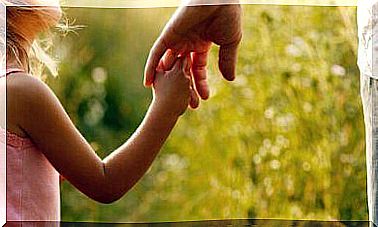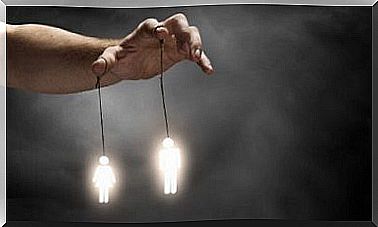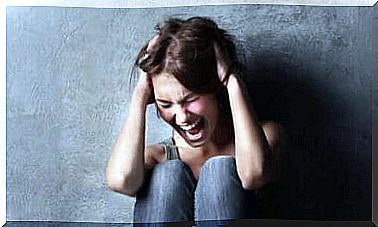Different Types Of Embarrassment And How They Affect Us

There are several different types of embarrassment. Although most have the same physiological consequences, they tend to differ in cognitive processing and the circumstances that produce them.
Join in to learn a little more about why we often feel embarrassed!
Recently, the renowned psychoanalyst Joseph Burgo classified four types of embarrassment that he considered fundamental. He says that people in today’s world are more likely to talk about what they find embarrassing and embarrassing.
At the same time, he explains that he how he thinks these different variants can affect us. In his book from 2018, Burgo presents four perspectives that we can use to study this phenomenon.
But before we start looking at the differences, we want to point out what these perspectives have in common:
- Redness of the face, neck and breasts.
- To want to escape from or avoid the situation.
- To want to disappear or change places.
- Not being able to look the other person in the eye.
- Transient mental confusion.
However, what experts in the study of this psychophysical condition believe seems to differ from how most people perceive this phenomenon.

Is embarrassment always negative?
Many people have a negative view of embarrassment. Those who are in charge of studying it, however, perceive it as more varied in nature, with more moderate and less drastic consequences.
In one way or another, embarrassment is a relatively common aspect of our daily lives that is difficult to avoid. However, it is not necessarily as toxic or negative as you might think.
Burgo put forward some interesting suggestions in his book. Based on over 35 years of clinical observations, he pointed out the link between embarrassment and self-esteem.
In this way , he considered the positive lessons one can learn by interacting with different types of embarrassment, in order to circumvent the negative effect of the inhibitions that cause them.
We do not often stop to consider all the different aspects of our state of embarrassment. We mainly tend to hide our embarrassment because we find it so uncomfortable. This can manifest itself in different ways:
- Addicted
- Perfectionism
- Self-pity
- Promiscuity
- Narcissism
Types of embarrassment and their influence
One of the reasons why it is easier to discuss the subject today is that people tend to be less afraid of what makes them ashamed. People usually do not shy away from talking about it.
In today’s society we are encouraged to show a true picture of ourselves. We listen to advice that says we should live in harmony with our qualities and our minds. This is why people are more willing to look within themselves and share what makes them ashamed.
Positive psychology, as common today, encourages you to accept your less positive traits with optimism.
For Burgo, dealing with embarrassment in all its forms is a daily task. It is a psychological process that shows up in our daily chores, as with many others. Therefore, handling it is natural and acceptable.
As we mentioned above, he suggests that we can distinguish four different types of embarrassment.
1. Unrequited love
Maybe you have loved someone, but the love was not answered or the person in question pushed you away. Perhaps you felt abandoned, and in many of these situations, embarrassment becomes humiliation.
We know that children begin to experience this type of embarrassment early in their lives. When babies do not get the love they need from their parents after several attempts to catch their attention, they experience something that can be likened to shame.
This is usually called “one-sided love”.
In psychology, experts have observed that people who have been brought up in this way show obvious signs of having been hurt by this one-sided love. This has a negative effect on the person’s development.

2. Unwanted exposure
This is not a very common situation. It happens when people mock others among people or when someone, for example, enters a room where you are naked.
This type of embarrassment is transient and not very relevant to the individual’s psychological well-being.
However, depending on the person’s predisposition and the strength of the feeling experienced, it can in some cases negatively affect the person or cause some form of trauma.
3. Non-fulfillment of expectations, or disappointment
Here we are talking about the type of embarrassment that occurs when, after trying to reach a goal, one does not succeed. You feel ashamed because of the expectations you had or that others forced on you.
When it comes to severity and potential effects, it is similar to the situation above. Some everyday examples that can generate this feeling are:
- Not being able to keep up with your expected performance at work.
- The erosion of a friendship.
- A romantic relationship that fails.
4. Exclusion or marginalization
As social beings, it is normal that we want to fit into a group and feel a sense of belonging. This principle applies to all areas of life: work, romantic relationships, friendships, etc. But there are times when this sense of belonging is threatened.
In these cases, high self-esteem and the ability to make valid assumptions can serve as a defense against the negative influences this type of embarrassment brings.
A good attitude would be the following: ” My friends have not invited me to the barbecue today because they know I work a lot and do not want to disturb me, not because they do not want to be with me.”

Conclusion
Embarrassment can be exhausting and difficult. So much so that in some cases it can be a decisive factor for the emotional balance and how your personality develops.
Some negative personality traits, such as narcissism and self-harm, are actually associated with a lack of resources to confront their shame.
Saying “no” to a child can create a very mild form of shame because it tends to interrupt the child’s natural impulse to explore. But this type of shame does not usually last very long and does not have long-term consequences.
However, there are people who are severely affected by embarrassment or shame. If they decide to seek psychological help – which we strongly recommend – the therapist will need to dive deep into their past.
This can only be done after the person in question has gained the patient’s trust, but once there, the person’s personal defense can be discovered.
Building bonds of trust requires time and effort, not least when dealing with deep feelings of shame, embarrassment and humiliation. It can be very disturbing for people to be judged by others.
We hope you found this article about different types of embarrassment interesting.









